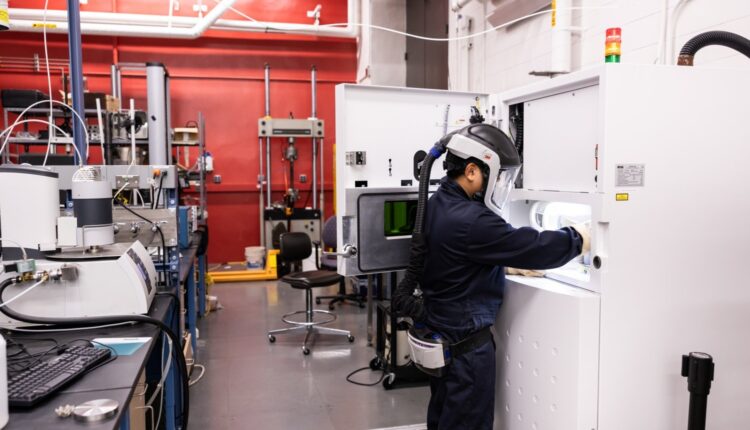Multidisciplinary Team Awarded to Research Novel Design Tools for Multi-Material Structures
A research team led by the Massachusetts Institute of Technology (MIT) has been awarded funding from the U.S. Defense Advanced Research Projects Agency (DARPA) to develop innovative design tools for multi-material structures.
This multi-institutional project, part of the Multiobjective Engineering and Testing of Alloy Structures (METALS) program, brings together experts from MIT, Carnegie Mellon University (CMU), and Lehigh University (Lehigh). Their goal is to optimize the shape and composition of materials within complex structures, focusing on bladed disk (blisk) geometries commonly used in turbomachinery like jet and rocket engines.
Project Significance
This project holds immense promise for advancements in various aerospace technologies, with potential applications in next-generation heavy-lift launch vehicles. By combining classical mechanics with cutting-edge Generative AI design techniques, the team aims to unlock the full potential of compositionally graded alloys, enabling safer operation under previously unachievable conditions.
Addressing the Challenges of Blisk Design
Blisk components require diverse thermomechanical properties across different locations to ensure optimal performance. Additionally, large-scale production necessitates considerations for cost-effectiveness and sustainability, including alloy sourcing and recycling within the design process.
The current limitations of employing a single material for blisk components often lead to compromises in design and performance. The research team emphasizes that desired properties can be mutually exclusive, necessitating inefficient trade-offs and compromises.
However, with the advent of advanced additive manufacturing techniques offering voxel-based control over material composition and properties, the team sees an opportunity to achieve unprecedented performance leaps in structural components.
Expertise and Collaboration
The research team comprises leading experts in diverse fields, including hybrid integrated computational material engineering, machine-learning-based material and process design, precision instrumentation, metrology, topology optimization, deep generative modeling, additive manufacturing, materials characterization, thermostructural analysis, and turbomachinery.
This multidisciplinary collaboration will involve developing novel computational approaches and constructing experimental platforms capable of operating under extreme conditions.
Project Funding and Disclaimers
This research is funded by DARPA under contract HR00112420303. The views expressed in this press release belong solely to the authors and do not necessarily represent the official position of the Department of Defense or the U.S. government.


